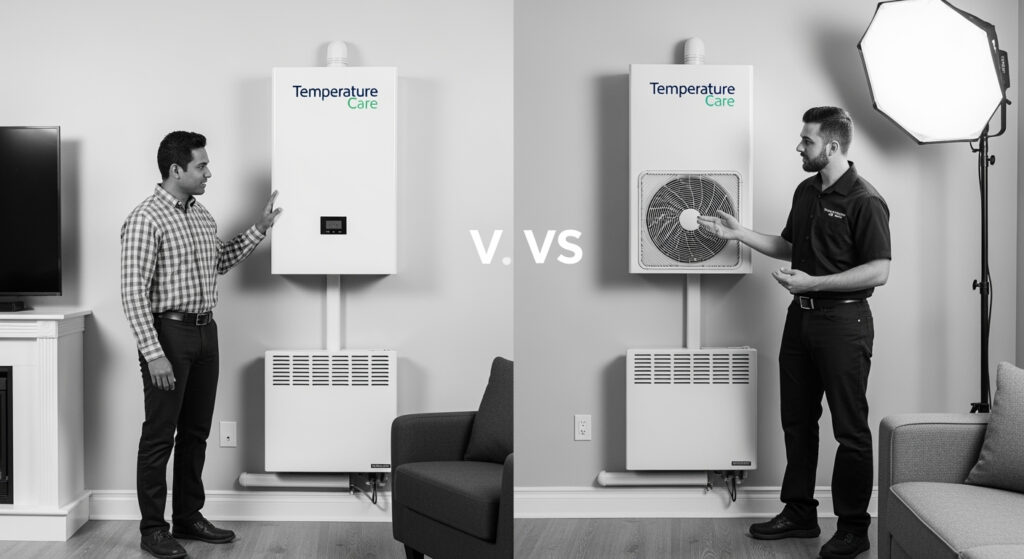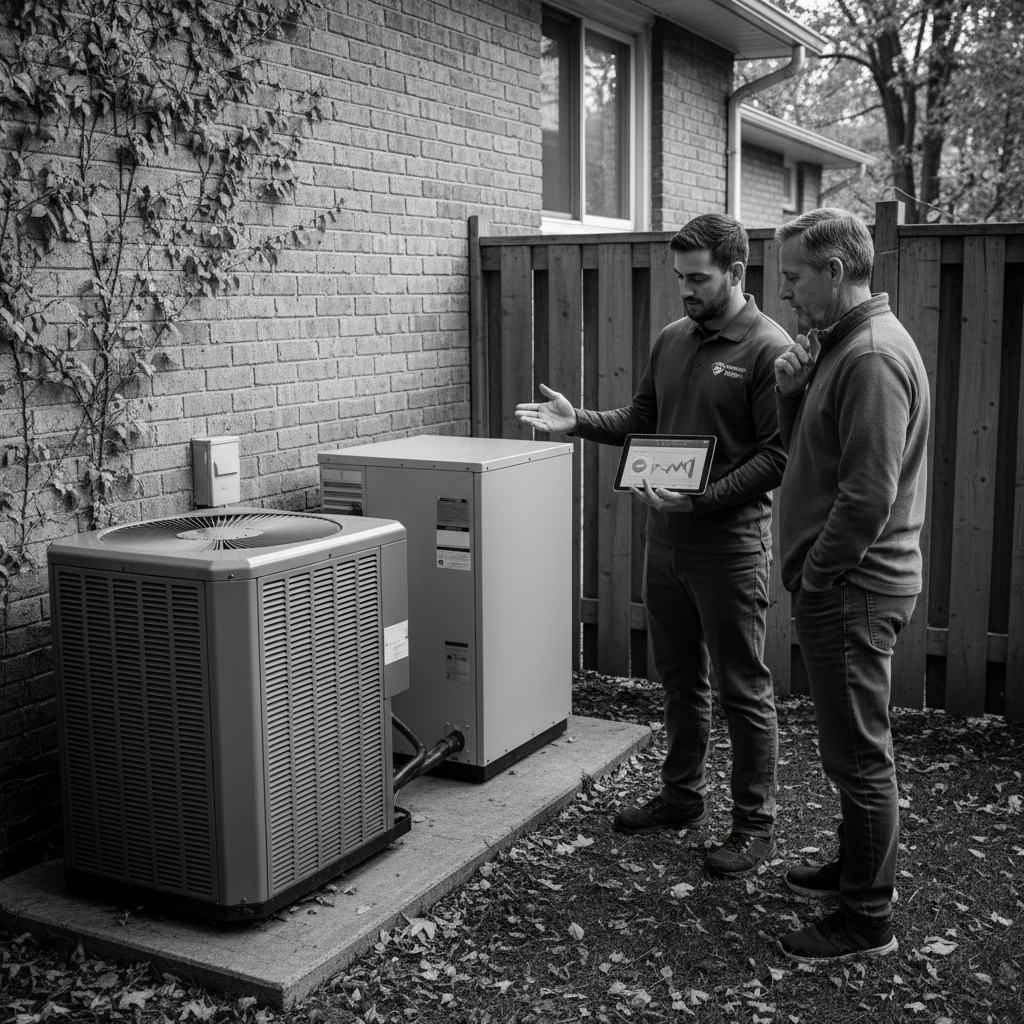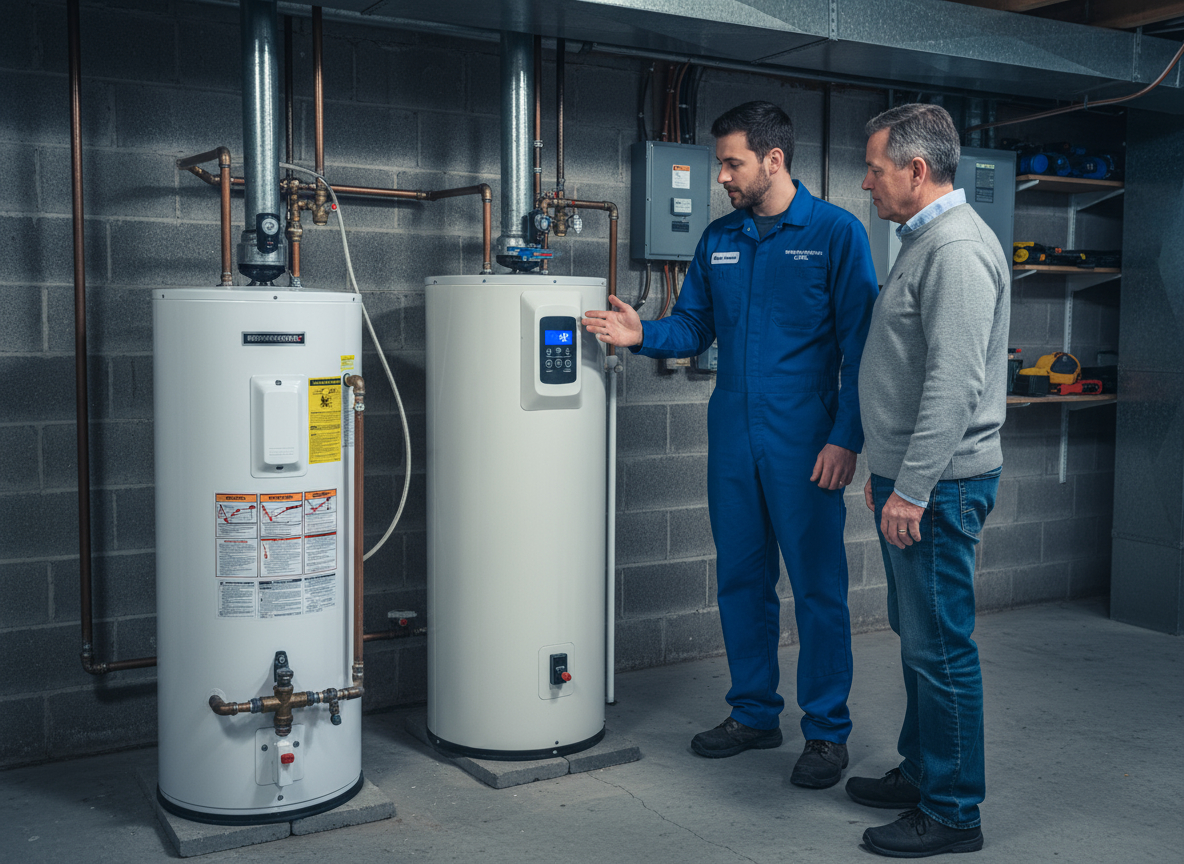Toronto homeowners looking to upgrade from outdated electric baseboards are increasingly considering heat pumps. But is it worth making the switch? In this guide from Temperature Care, we’ll compare heat pumps vs electric baseboard heating so you can make the right choice for year-round comfort, savings, and sustainability.
How Do They Work?
- Electric Baseboard Heaters:
Use electric resistance coils to create heat. Each room’s baseboard operates independently. No ducts or air movement, just silent radiant heat. - Heat Pumps:
Move heat from outside to inside your home using electricity and refrigerant. In summer, they reverse to provide air conditioning as well!
Learn more: Energy Star – How Heat Pumps Work
Efficiency Comparison
- Electric Baseboards:
1 unit of electricity = 1 unit of heat (100% efficient, but expensive with Toronto’s hydro rates). - Heat Pumps:
1 unit of electricity = 2–3+ units of heat (200–300% efficient!). You get more heat per dollar—especially with cold-climate models made for Toronto’s winters.
Read: Natural Resources Canada – Heat Pump Efficiency
Year-Round Comfort
- Heat pumps provide both heating and cooling, replacing the need for window ACs or portable units.
- Baseboard heaters only provide heat—no cooling for Toronto’s hot, humid summers.
Energy Costs & Savings
- Homeowners switching to heat pumps often see up to 50% lower heating bills compared to electric baseboards.
- Rebates and grants are available to help with upfront costs:
Comfort and Air Quality
- Heat pumps: Circulate air, help filter dust/pollen, and manage humidity for healthier indoor air.
- Baseboards: Radiant heat with no air movement—good for allergies, but no filtration or humidity control.
Environmental Impact
- Heat pumps: Much lower greenhouse gas emissions—especially with Ontario’s clean electricity grid.
- Baseboards: Higher electricity consumption leads to a bigger carbon footprint.
See: Clean Energy Canada – Environmental Benefits of Heat Pumps
Installation: What to Expect
- Baseboards: Simple and inexpensive to install, but often more expensive in the long run.
- Heat pumps: Higher initial investment, but significant monthly savings, comfort, and rebates. Choose between ducted and ductless (mini-split) systems depending on your home’s layout.
Compare ducted vs ductless: ENERGY STAR Guide
Which Is Right for You?
- Choose a heat pump if you want lower bills, cooling, and better air quality.
- Stick with baseboards only if you have a small space, rarely use heat, or cannot install a heat pump due to condo/building restrictions.
Get Expert Advice from Temperature Care
Every home is unique. Our Toronto-based experts can recommend the best system for your space, comfort, and budget.
📞 905-780-3262
Book your consultation online
External Resources
Efficiency Canada: Heat Pump Resources
US DOE: Electric vs Heat Pump Heating

 905-780 3262
905-780 3262


